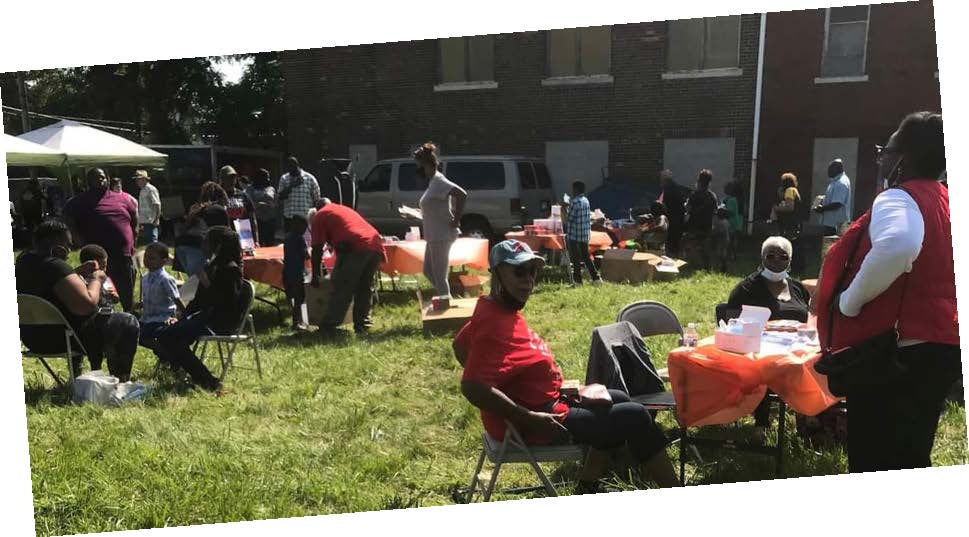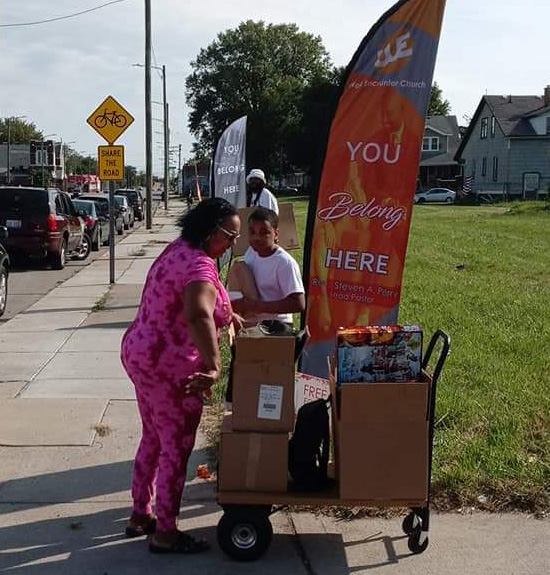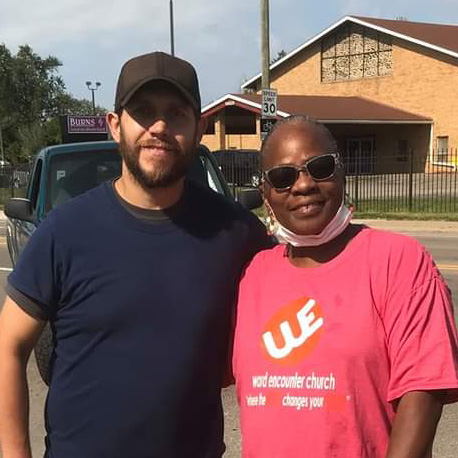By Steve Perry National Missions Church Planter
I was born in Detroit, Michigan, during the 1980s, when the crack cocaine epidemic took place. My grandfather was a drug dealer, my mother and father were selling drugs as well. They were also drug users. The 1990s was when the police got more involved, and I watched many of my family members very close to me, aunts, uncles, cousins, friends were either locked up or die from the lifestyle. Thanks to Nancy Reagan’s campaign on “Say No” to drugs. I had a tangible reality on why to say “NO” to drugs. We lived in poverty; we had so many roaches that there had to be at least 3 Kingdoms of them, and on top of that, they were fighting wars.
It was just a sad situation. I knew as a child that for me not to die or get caught on drugs that I had to do something different. In August of 1990, I was seven years old. One Saturday evening, I asked my mother if my brother and I could go to church. She allowed us to go to church. We had never gone, so we wore a white shirt, black pants, and white gym socks. I also wore a belt for a tie.
We went to church, and I heard a gospel that Sunday so simple and with so much energy that I had to give my life to Christ. I was compelled in a church service that I needed a Savior. I needed a person that could change the direction I could have gone because of the examples I had around me.
I often ask myself what would have happened if that church was not in that community. Would I have tried Islam if it was there? If Hebrew Israelites were there, would I have made that choice? Why didn’t I join a gang? After all, that’s what young inner-city boys do when they have no guidance. What would my life be like if there was no Gospel-based church in that neighborhood? Maybe I would not have received God. When we started gathering our core group, all I had in mind was, “How could I reach a kid or an adult within this context that would be a follower of Jesus Christ.”
There are a lot of conversations about gentrification in Detroit. Alongside that are church plants that are trying to reach the “Gentrified.” All the resources are to that group of people. If we can just keep it real, dealing with that demographic is much easier. You have people who have cars, have decent jobs, are most likely married or come from a household with two parents, and have skills to help these churches with technology.
In most cases, they may not have to provide the essentials for people. Detroit, for many decades, has gotten a whole lot of negative press. Here are some humbling realities in the neighborhood where we are planting. The median gross income is $20,000 per year. As a result, after people pay their bills, they don’t have much for savings. You may as well forget about solid marriages. Single-parent homes are at a very high percentage rate. It’s difficult to establish good and solid homes.

The Lord has blessed me. I’ve never been to jail, never done drugs, don’t struggle with alcoholism because of Jesus. Everybody is trying to figure out how to change the Urban cities in America. Money can’t change habits. Changing your sexuality doesn’t make you feel better. Being an independent woman doesn’t make your life easier. Jesus can change people’s lives and cause their hearts to be pricked and want to receive Jesus Christ as Lord and Savior.
We started Word Encounter Church (WE Church) because we know Urban City Detroit not only needs help with housing, food, clothing, and education, but Urban America needs Jesus. Word Encounter Church is a disciple-based church that is looking to develop disciples that will make other disciples. People that want change in their personal lives but care about the lives of their friends and family members.
Our Savior doesn’t only change people’s lives from an event perspective; he saves lives from a process perspective (sanctification). Salvation is the event but, sanctification is the process. We have a strategy to create these opportunities.

Our outreaches have been more about developing community credibility, especially since many churches are more inward-focused than outward-focused. Our outreaches give us opportunities to connect with the community. We then take that information and just build credibility through consistent contacts. If we meet somebody personally, we develop a friendship, and from there it goes on.
On September the 18th, we had an opportunity to minister to nearly 600 people in our recent outreach. We gave away 300 boxes of food, clothing, about $10,000.00 worth of toys, 200 Backpacks, and much more. We collected nearly 400 names and numbers that give us access to people and continue to build relationships. We THANK GOD for the continued support of General Baptists and National Missions.

We do need your help, though. We need you to keep us on your prayer list. Pray for my wife and me as this journey requires much faith and character. Secondly, we need helpers, and this is a great task. We need help with the many endeavors from people that may have building skills to administrative gifts. Lastly, this is an inner-city ministry, and on average, it takes 7 to 10 years to establish because the financial support isn’t there.
If you feel the lead of the Lord to support this work in that way, we need your help. Last but not least, there is a whole lot that tends to go on in the inner city. Will we continue to sit on the sideline or get on the field and actively participate? My question for you is whether we will continue to sit on the sideline or get in the field and actively participate.